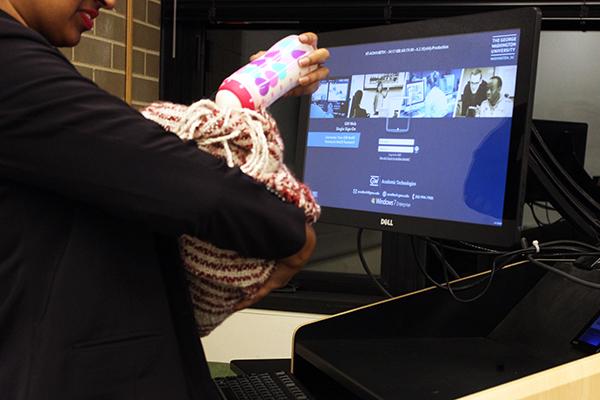An extensive paid family leave program could cost private institutions in the District $15 million if implemented.
John Cavanaugh, the president and CEO of the Consortium of Universities of the Washington Metropolitan Area, said that the program’s cost would make it difficult for D.C.’s seven private institutions to implement it. The proposal – which would be paid for through a payroll tax – would require all private employees to provide 16 weeks of paid leave to employees going through life events like having a baby.
Cavanaugh added that universities would likely have to increase tuition and slash budgets to pay the additional tax, which he said would lead to the national concern of growing student debt.
“It is important to point out that unlike most other business sectors, consortium universities in the District cannot simply increase their enrollments to generate the necessary revenues to pay for the program because District universities are subject to enrollment caps,” Cavanaugh said.
GW currently offers six weeks of continuous paid leave for full-time staff members on parental leave, according to the University Human Resources website. Faculty who are new parents can take up to a full semester off while still being paid.
D.C. schools like GW, Howard and Catholic universities have each faced budget cuts over the past year.
Ward 5 Council member Kenyan McDuffie introduced the bill in October, and the Council is currently reviewing the measure. Under current D.C. and federal laws, employers are required to protect an employee’s job for up to 12 weeks if they need to take paid time off. The change would make the plan the most expansive employee leave plan in the country.
Universities are not the only groups that would feel the impact of the bill. A dozen business and trade associations asked the D.C. Council late last month to study the financial impact of the bill further, saying it could hurt their bottom line. The payroll tax would be up to 1 percent of a company’s total employee salaries.
The group of business and trade associations urged D.C. Council Chair Phil Mendelson in a Jan. 21 letter to address “outstanding questions” about the bill. They asked that the Council set up a group of city leaders and members of the business community to discuss the idea further.
“We call upon you to convene a meeting of all the stakeholders, including representatives from the business community, to discuss how best to create a fiscally sustainable paid leave program,” the letter reads.
Jim Dinegar, the president and CEO of the Greater Washington Board of Trade, said the fluctuating cost estimates would make it difficult for D.C. businesses to fund the paid leave program through the proposed payroll tax. He said studies have estimated the program could cost anywhere from $400 million to $1.2 billion.
Dinegar added that the current bill is broad and may negatively impact companies whose workers live out of state, because they have to pay the tax no matter what. He also said the bill could increase competition for D.C.-based jobs.
“This puts D.C. employers and employees at a competitive disadvantage when there is overlap in neighboring states,” he said.
Lisa Mallory, the CEO of the District of Columbia Building Industry Association, said that all members in the coalition represent the interests of businesses across multiple industries and are concerned that the proposal could hurt employers.
“We came together to express our desire to form a working group to study all the facts and help balance the burden being placed on employers,” Mallory said. “It’s going be very challenging to create a new program of its kind that needs to be data-driven and we are concerned that this proposal is being done in a vacuum.”








